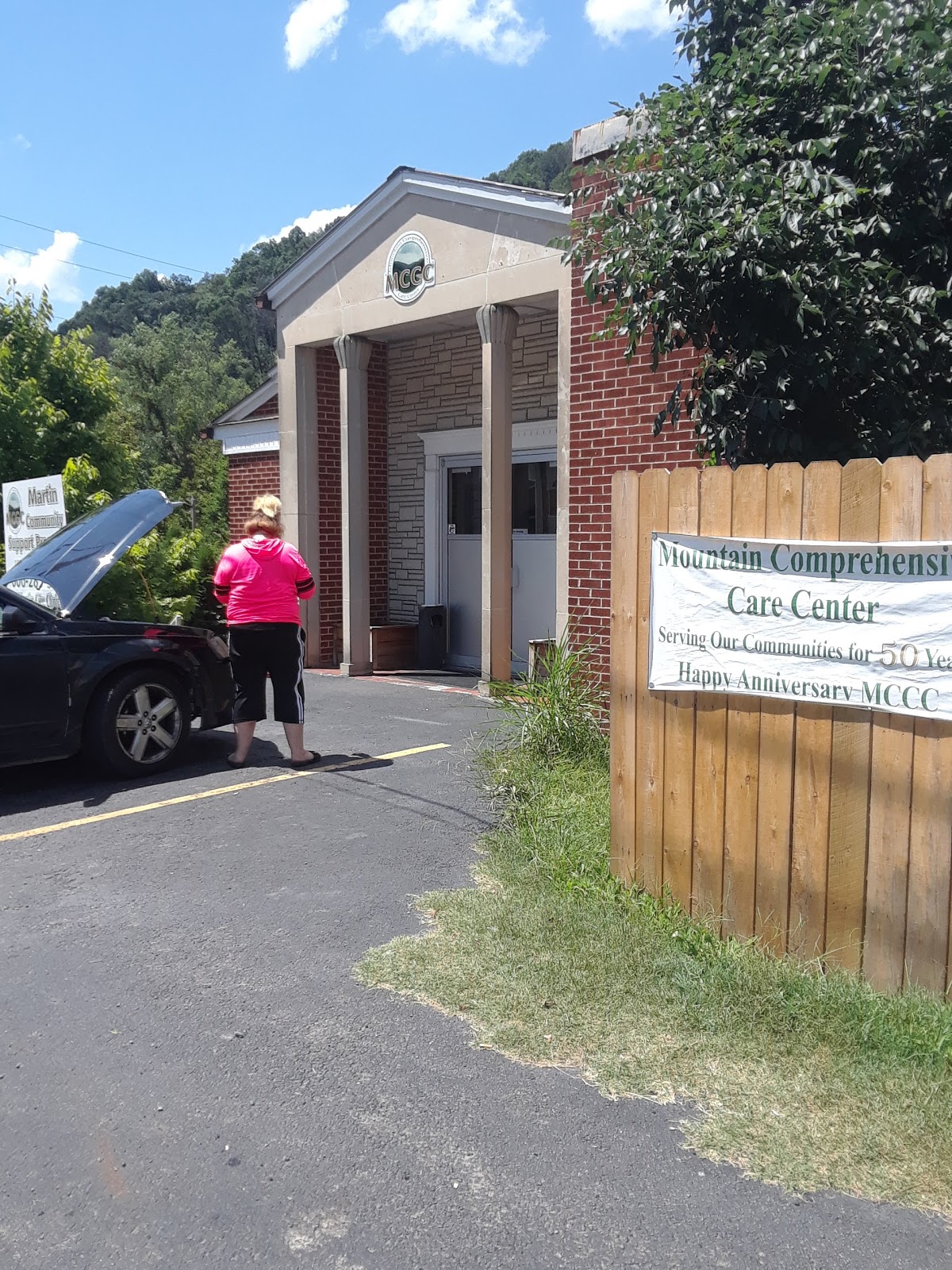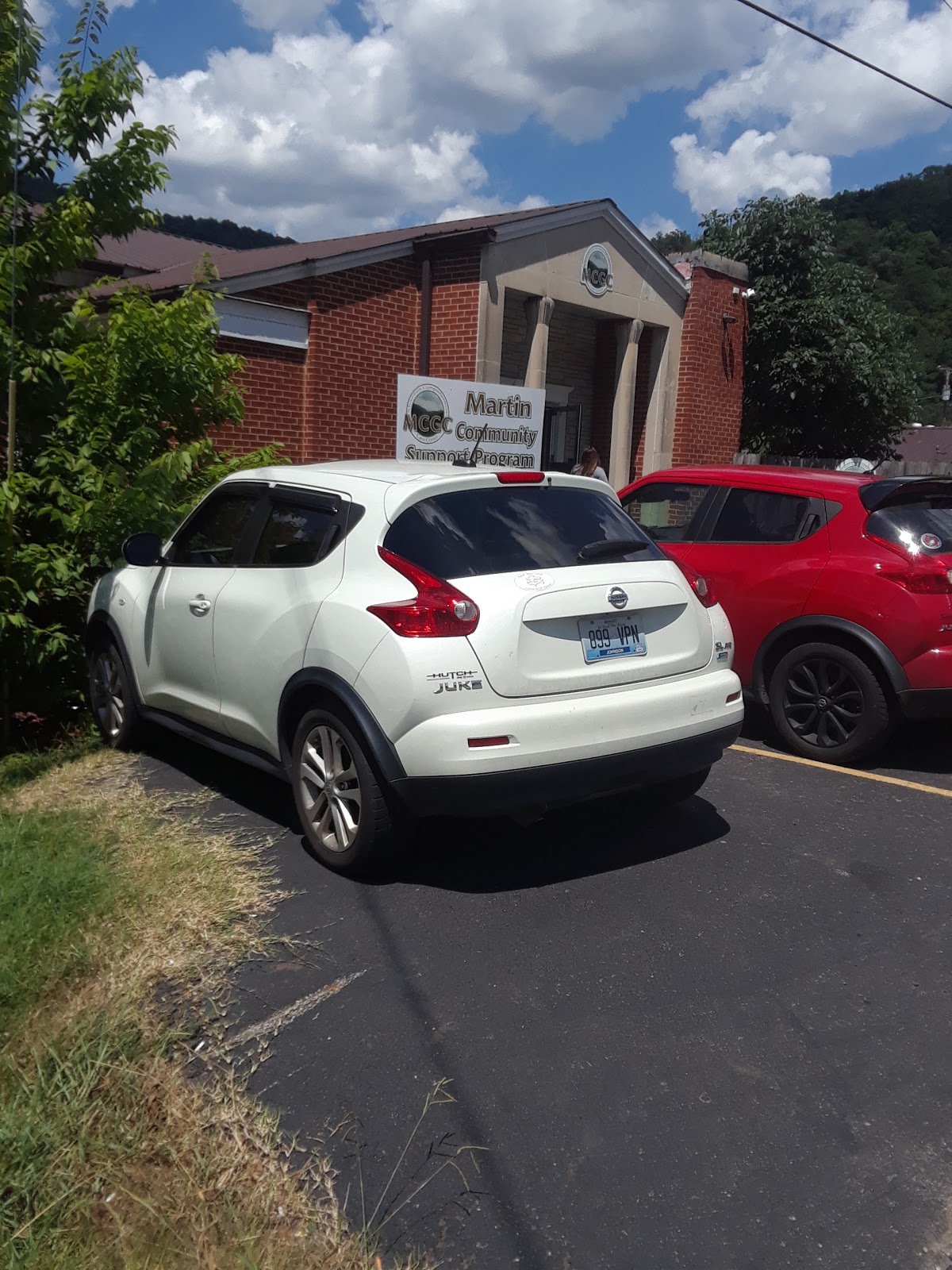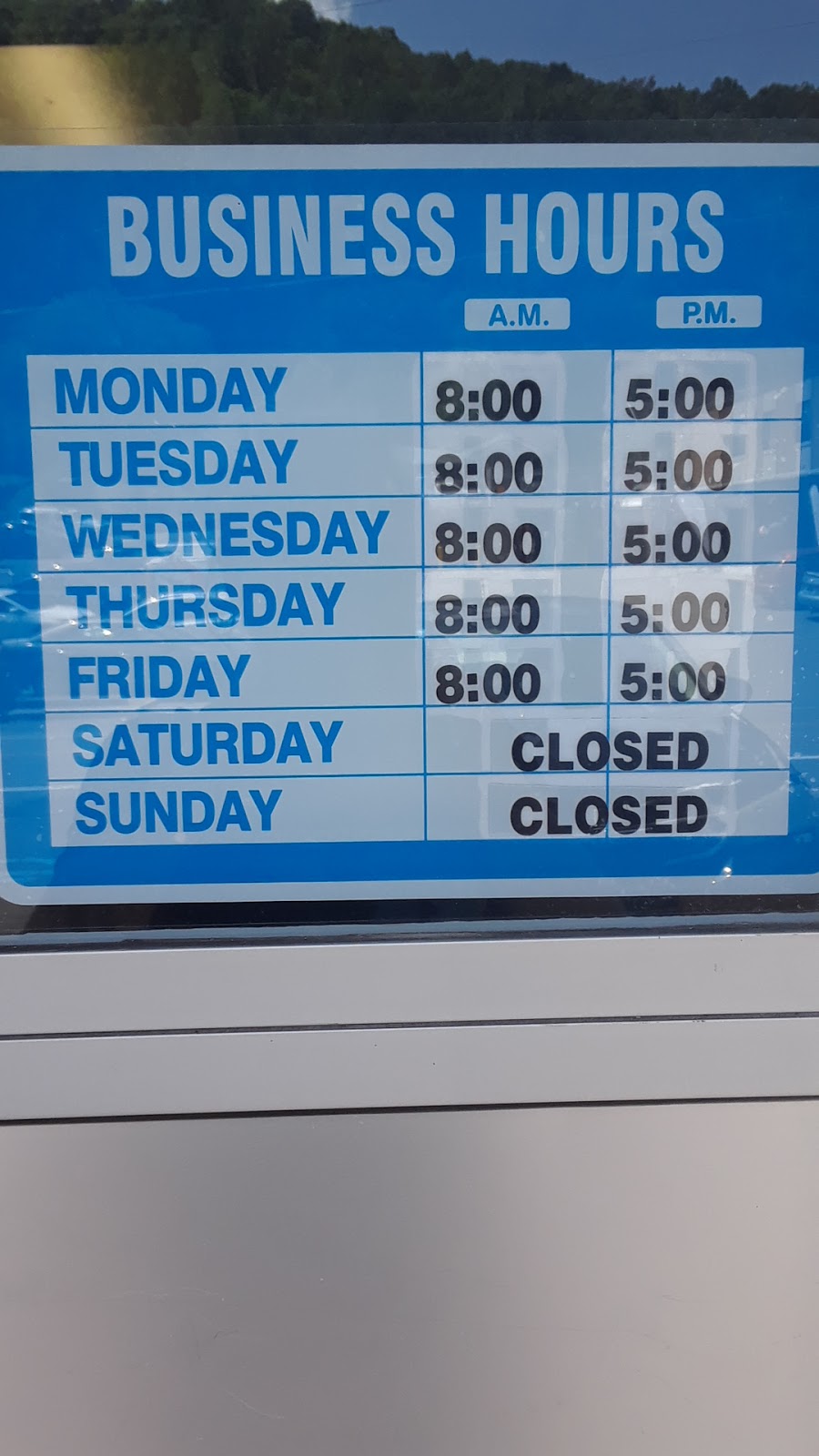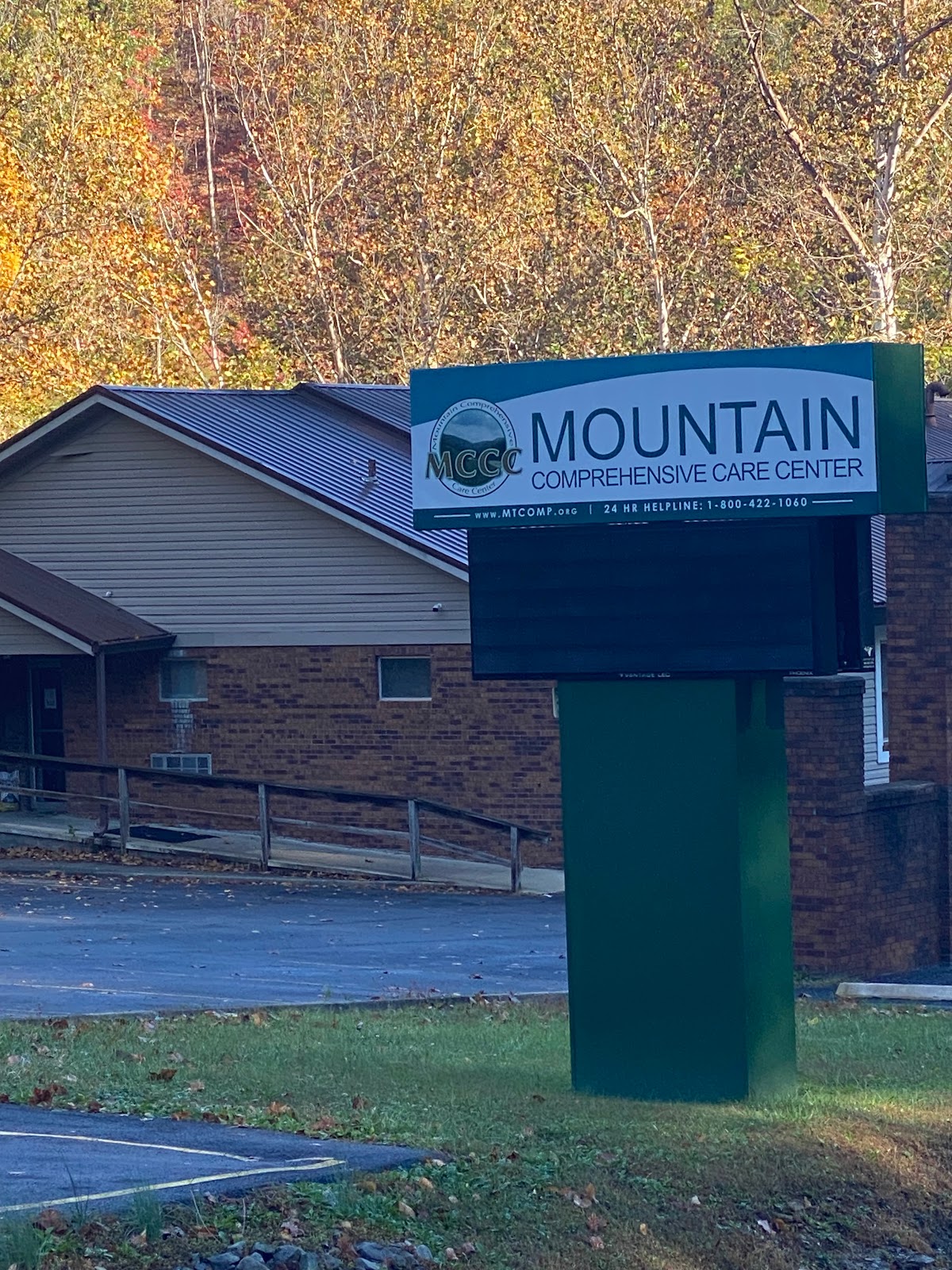Overview
Mountain Comprehensive Care Center is an substance abuse treatment center that provides outpatient treatment for men and women from 18+ years of age. As part of their special programs, Mountain Comprehensive Care Center treats children/adolescents with serious emotional disturbance (sed) and clients who have experienced trauma. To help patients achieve sobriety, Mountain Comprehensive Care Center provides intake assessments. Afterward, patients receive individual psychotherapy, cognitive behavioral therapy, and dialectical behavior therapy during treatment. Mountain Comprehensive Care Center is located in Martin, Kentucky, providing treatment for people in Floyd County, accepting county or local government funds, community mental health block grants, and community service block grants.
Mountain Comprehensive Care Center at a Glance
Payment Options
- County or local government funds
- Community Mental Health Block Grants
- Community Service Block Grants
- Medicaid
- Other State funds
Assessments
- Comprehensive mental health assessment
- Comprehensive substance use assessment
Age Groups
- Adults
- Children/adolescents
- Young adults
Operation
- State government
Treatment At Mountain Comprehensive Care Center

Conditions Treated
Mental health treatment:
Mental health facilities offer a safe space for individuals to get specialized care. Trained experts create personal plans using therapies, possibly including medication. The goal is to help individuals cope better and lead fulfilling lives, with constant support and a community feel.
Substance use treatment:
Substance use rehabilitation embodies a holistic treatment approach crafted to assist individuals contending with drug or alcohol addiction. This all-encompassing rehabilitation strategy encompasses two crucial components: initially addressing the physical dependency, frequently commencing with detoxification, and subsequently confronting the psychological triggers through a diverse array of therapeutic methods. The overarching objective is to empower individuals to achieve and maintain sobriety while equipping them with essential skills and coping mechanisms for a successful reintegration into society and a life free from substance abuse.
Co-occurring Disorders:
Dual-diagnosis rehabilitation centers usually offer the most suitable approach for addressing concurrent mental health and substance abuse conditions. Within these facilities, a team of medical and behavioral professionals is typically assembled, employing diverse interventions and cultivating an optimal therapeutic environment to enable you to attain and maintain lasting recovery. The treatment regimen often encompasses evidence-based therapies, such as cognitive behavioral therapy, complemented by recovery support gatherings, 12-step program facilitation, skills development, and group therapy.

Levels Of Care
Outpatient:
Outpatient treatment at rehab centers provides adaptable therapy schedules, usually spanning 1-3 hours weekly, enabling participants to maintain their everyday routines while undergoing treatment. On the other hand, intensive outpatient programs require a more dedicated time investment, frequently around 9-15 hours a week, delivering a deeper therapeutic experience without the commitment of inpatient residency.

Treatment Modalities
Individual psychotherapy:
Individual Psychotherapy is a personalized therapeutic approach aimed at aiding individuals in overcoming addiction and its underlying psychological triggers. A licensed therapist works closely with the individual through one-on-one sessions to unearth and address personal challenges, emotional issues, and behavioral patterns contributing to their substance abuse. Individual psychotherapy lays a robust foundation for a sustainable recovery and a better quality of life by fostering self-awareness, coping strategies, and healthier behavioral responses.
Cognitive Behavioral Therapy:
Cognitive Behavioral Therapy (CBT) is a form of psychotherapy that emphasizes the critical role of thinking in how we feel and what we do. It aims to identify and challenge distorted or negative thought patterns and behaviors, teaching individuals to replace them with more constructive and rational beliefs. CBT is evidence-based and has been shown to be effective in treating a variety of psychological disorders, including depression, anxiety, and phobias, among others.
Dialectical Behavior Therapy:
Dialectical Behavior Therapy (DBT) for addiction treatment is a comprehensive cognitive-behavioral approach initially developed to treat individuals with borderline personality disorder. Adapted for addiction, DBT emphasizes the development of four core skills: mindfulness, emotion regulation, distress tolerance, and interpersonal effectiveness. Through individual and group sessions, patients learn to understand their triggers, manage negative emotions, cope with cravings, and improve relationships, all of which contribute to long-term recovery and reduced substance use.
Group counseling:
Group Counseling is a therapeutic approach where individuals come together under the guidance of a trained counselor to share experiences, provide mutual support, and gain insights. It fosters a sense of community, promotes understanding through diverse perspectives, and offers personal growth and problem-solving strategies.
Experiential Therapy:
Experiential therapy is a therapeutic approach that encourages patients to identify and address hidden or subconscious issues through activities, interactions, and role-playing. Instead of focusing solely on talking, therapists use experiential techniques to help clients relive past traumas, express emotions, and gain insights into their behaviors. The aim is to foster personal growth and enhance self-awareness by immersing individuals in experiences that can lead to a deeper understanding of themselves and their relationships.
Nutrition Therapy:
Medical Nutrition Therapy (MNT) is a personalized dietary approach to manage medical conditions and improve health. Spearheaded by registered dietitians or professional nutritionists, MNT involves the formulation of tailored diet plans to address specific health issues, promoting overall physical and mental well-being. Through MNT, individuals are empowered to make informed food choices, which play a pivotal role in their healthcare journey.
Trauma-related counseling:
Trauma-related counseling is a specialized form of therapeutic intervention aimed at assisting individuals who have experienced distressing, life-altering events. This approach focuses on helping clients process their traumatic experiences, develop coping mechanisms, and rebuild a sense of safety and trust. Counselors trained in trauma therapy use evidence-based techniques to support healing and resilience, ensuring survivors can move forward and lead fulfilling lives despite their past adversities.
Ancillary Services
Languages
- Sign language services for the deaf and hard of hearing
Special Programs
- Children/adolescents with serious emotional disturbance (SED)
- Clients who have experienced trauma

Additional Locations
Contact Information
DISCLAIMER: The facility name, logo and brand are the property and registered trademarks of Mountain Comprehensive Care Center, and are being used for identification and informational purposes only. Use of these names, logos and brands shall not imply endorsement. BetterAddictionCare.com is not affiliated with or sponsored by Mountain Comprehensive Care Center.





